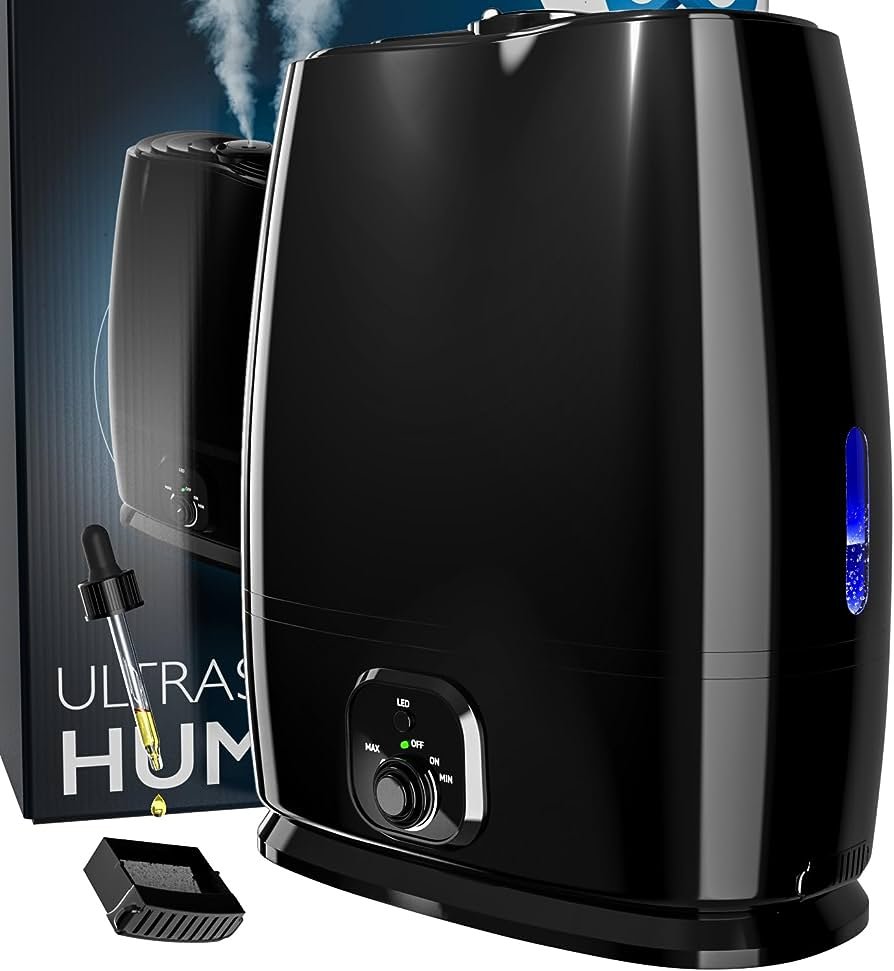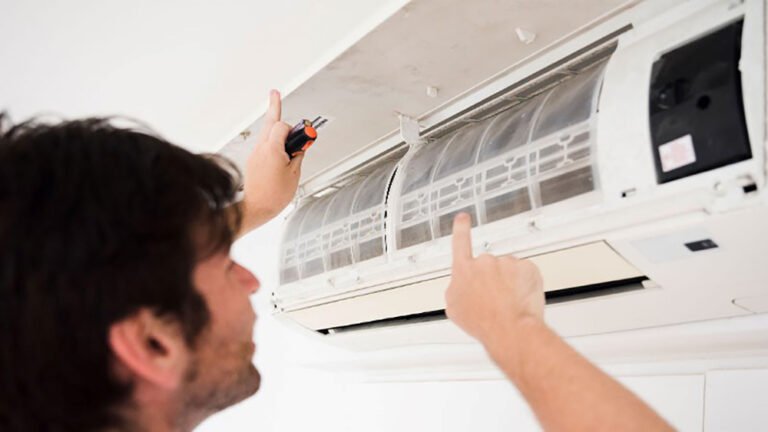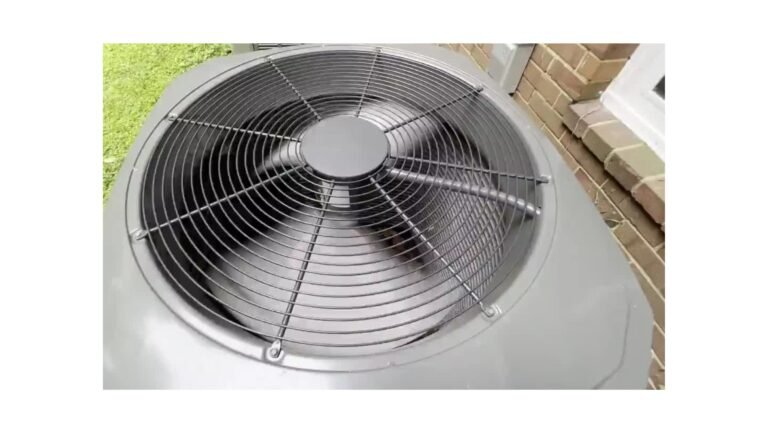Does Air Conditioning Relieve Allergies: The Power of Cool Air
Yes, air conditioning can help alleviate allergies by filtering out allergens and improving indoor air quality. Air conditioning aids in reducing allergy symptoms as it effectively eliminates airborne allergens like pollen, dust mites, and pet dander through its filtration system.
This helps create a healthier environment, particularly for individuals who are prone to allergies. Additionally, air conditioning regulates humidity levels, discouraging the growth of mold and mildew, which can also trigger allergic reactions. However, it is important to regularly clean and maintain the AC unit, ensuring that the filters are clean, as dirty filters can actually worsen allergies.
By properly maintaining and utilizing air conditioning, individuals with allergies can experience relief and improved overall well-being.
Credit: www.ebay.com
The Relationship Between Air Conditioning And Allergies
Air conditioning plays a crucial role in managing indoor air quality and can impact allergies in both positive and negative ways. Understanding the relationship between air conditioning and allergies is essential for creating a healthy and comfortable environment.
Firstly, air conditioning helps reduce indoor humidity levels, preventing the growth of mold and mildew, which are common allergens. By maintaining optimal humidity levels, air conditioning can effectively minimize the presence of allergens in the air, providing relief to allergy sufferers.
Secondly, air conditioning filters the air, capturing dust, pollen, pet dander, and other airborne allergens. High-quality filters can significantly improve indoor air quality and reduce allergy symptoms. It is important to regularly clean or replace these filters to ensure their efficiency.
However, improper maintenance or neglect of air conditioning systems can have the opposite effect. Dirty filters and ducts can become breeding grounds for allergens, circulate contaminated air, and worsen allergy symptoms. Regular cleaning and maintenance are crucial to prevent this.
In summary, when adequately maintained, air conditioning can help alleviate allergies by controlling humidity levels, reducing the presence of allergenic particles, and improving indoor air quality. However, proper maintenance and regular filter replacements are essential to ensure its effectiveness.
How Air Conditioning Can Help Relieve Allergies
When it comes to allergies, air conditioning can play a vital role in providing relief. By filtering allergens through air conditioning systems, pollen, dust mites, and other airborne irritants can be significantly reduced. Air conditioning units are equipped with filters that capture these allergens, preventing them from circulating in the air. This can greatly benefit individuals with respiratory conditions such as asthma or hay fever.
In addition to filtering allergens, air conditioning can also help in balancing humidity levels, which can further alleviate allergy symptoms. High humidity promotes the growth of mold and mildew, which are known to trigger allergies. Air conditioning systems can remove excess moisture from the air, creating a dryer environment that is less conducive to mold growth.
Furthermore, air conditioning helps to maintain a consistent temperature indoors, minimizing the need to open windows. By keeping windows closed, airborne allergens like pollen are prevented from entering the living space, reducing exposure and potential allergic reactions.
Choosing The Right Air Conditioning System For Allergy Relief
Did you know that choosing the right air conditioning system can help alleviate allergies? Allergies can be a real nuisance, and having a suitable air conditioner can make a significant difference in your comfort and well-being. There are a few considerations you should keep in mind when selecting an air conditioner for allergy relief.
First, it’s important to understand the types of air conditioning systems that are suitable for allergy sufferers. A central air conditioning system with a high-quality air filter can effectively remove allergens such as pollen, dust, and pet dander from the air. The filter should have a high MERV rating to ensure efficient filtration.
Another option is a ductless mini-split air conditioner, which can provide zoned cooling while minimizing the circulation of allergens. These systems typically have built-in filters that can capture airborne particles and improve indoor air quality.
Lastly, a portable air conditioner with a HEPA filter can also be a good choice for allergy relief. These units are easy to move around and can be a convenient option if you require cooling in specific areas of your home.
By carefully considering your options and selecting an air conditioning system that is well-suited for allergy relief, you can create a healthier and more comfortable indoor environment for yourself and your family.
Maintaining Your Air Conditioning System For Optimal Allergy Relief
When it comes to allergy relief, maintaining your air conditioning system is crucial. Regular cleaning and maintenance help minimize allergens in your home. One important aspect of maintenance is changing the air filters. Air filters play a vital role in filtering out dust, pollen, pet dander, and other particles that can trigger allergies. Regularly replacing your air filters ensures that your air conditioning system is effectively removing allergens from the air. It is recommended to change the filters every three months or more frequently if you have pets or allergies. Additionally, keeping the air ducts clean and free from dust buildup is important. Professional duct cleaning can help remove accumulated dust and allergens, ensuring cleaner air circulation. By maintaining your air conditioning system, you can significantly reduce the presence of allergens and enjoy better air quality in your home.
Additional Measures To Improve Allergy Relief With Air Conditioning
Does Air Conditioning Help Allergies
Additional Measures to Improve Allergy Relief with Air Conditioning
Using air purifiers in conjunction with air conditioning can greatly improve indoor air quality. Air purifiers work by filtering out allergens such as pollen, dust mites, and pet dander, ensuring that the air you breathe is clean and allergen-free. It is important to choose an air purifier that is suitable for your specific needs and matches the size of the room. Additionally, incorporating proper ventilation techniques can further enhance indoor air quality. Opening windows periodically to allow fresh air to circulate and using exhaust fans in areas prone to moisture, such as bathrooms and kitchens, can help prevent the accumulation of allergens. Regularly cleaning and maintaining your air conditioning system is also crucial to ensure its optimal performance in reducing allergens. By following these additional measures, you can create a healthier indoor environment for allergy sufferers.
Managing Allergies In Different Climates With Air Conditioning
Addressing seasonal allergies in various geographic regions can be challenging, but air conditioning can provide much-needed relief. Extreme weather conditions can exacerbate allergy symptoms, making it essential to utilize air conditioning effectively. In hot and humid climates, AC helps by reducing moisture levels, thus inhibiting mold growth, a common allergen. In dry and arid climates, AC filters and purifies the air, removing pollen, dust, and other allergens. Proper maintenance of air conditioning systems is crucial to ensure optimum performance. Regular cleaning and filter replacement help prevent the accumulation of allergens and maintain indoor air quality. Additionally, using air purifiers alongside AC can further enhance allergy relief. Personalizing the cooling settings based on individual preferences and needs can maximize air conditioning benefits for allergy sufferers. By creating a comfortable and allergen-free indoor environment, air conditioning plays a significant role in managing allergies in different climates.
The Benefits And Limitations Of Air Conditioning For Allergies
Allergy sufferers often wonder whether air conditioning can alleviate their symptoms. Understanding the advantages and limitations of using air conditioning for allergy management can help individuals make informed decisions.
Exploring The Advantages Of Air Conditioning For Allergy Sufferers
Filtration: Air conditioning systems can filter out allergens such as pollen, dust, and pet dander, improving indoor air quality and reducing exposure to triggers.
Temperature control: Air conditioning allows individuals to control the temperature and humidity in their environment, which can help minimize the growth of mold and dust mites, common allergens.
Reduced outdoor exposure: By keeping windows closed, air conditioning creates a barrier against outdoor allergens and pollutants, providing relief for those sensitive to environmental triggers.
Understanding The Limitations And Potential Drawbacks Of Air Conditioning In Allergy Management
Indoor air quality: While air conditioning filters can improve indoor air quality, it is essential to regularly clean and maintain these filters to ensure their effectiveness.
Dryness: Air conditioning can cause dryness in the air, which may worsen symptoms for individuals with dry or irritated respiratory passages.
Not a complete solution: While air conditioning can provide relief indoors, it does not address outdoor allergens and may not fully eliminate symptoms for everyone.
When considering air conditioning for allergy management, it is crucial to weigh the benefits against the potential limitations and work with medical professionals to develop a comprehensive allergy management plan.
Frequently Asked Questions Of Does Air Conditioning Help Allergies
Does Air Conditioning Help Relieve Allergy Symptoms?
Yes, air conditioning can help relieve allergy symptoms. It filters out allergens like pollen and dust from the air, providing cleaner and healthier indoor air. Additionally, air conditioning helps control humidity levels, reducing the growth of mold and dust mites which can trigger allergies.
Can Air Conditioning Worsen Allergies?
No, air conditioning does not worsen allergies. In fact, it can improve allergy symptoms by filtering allergens from the air. However, if the air conditioning system is not properly maintained, it can accumulate dust and pet dander, which may exacerbate allergies.
Regular cleaning and maintenance can prevent this issue.
Does Central Air Conditioning Reduce Indoor Allergens?
Yes, central air conditioning reduces indoor allergens. It effectively filters out pollen, pet dander, and other allergens, improving indoor air quality. However, it is important to regularly clean and replace air filters to maintain the effectiveness of the system in reducing allergens.
Regular maintenance ensures optimal allergy relief.
Conclusion
Air conditioning can be beneficial for individuals with allergies. By filtering the air and reducing humidity levels, it helps remove pollen, dust, and other allergens from the environment. However, it is important to regularly maintain and clean the AC unit to ensure optimal air quality.
Additionally, implementing other allergy-reducing measures such as frequent dusting and vacuuming can further improve indoor air quality for allergy sufferers.







